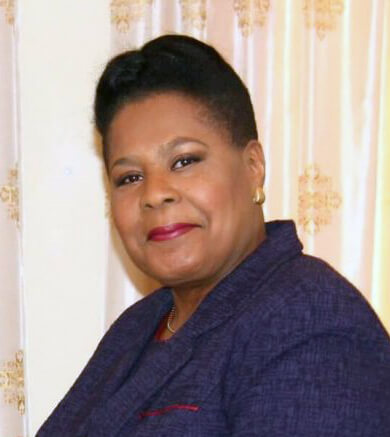Trinidad has forever been known to be a country with a healthy, competitive political climate with not a day passing without either the governing party or the main opposition dominating media headlines and social debates.
After all, it is the country which invented the social concept of bacchanal, to describe in part incidents relating to drama, conflict, scandal and political rivalry.
On Thursday, both houses of the twin island’s parliament with Tobago will be involved in an unprecedented session to vote to decide whether an opposition motion to impeach ceremonial President and former high flyer judge Paula-Mae Weekes will go forward.
The main opposition United National Congress (UNC) of former Prime Minister Kamla Persad-Bissessar has moved to have Madame Weeks vacate the colonial era presidential palace blaming her for colluding with the Keith Rowley Administration to undermine the independence of the police service commission and to breach other constitutional procedures. Weekes was the first woman president of Trinidad, appointed back in 2018. The UNC had supported her nomination. Now, opposition heavy weapons are trained on her as they accuse her of bias towards the governing People’s National Movement (PNM).
The republic has been embroiled in tense political debates over the appointment or reappointment of controversial Police Chief Gary Griffith. The imbroglio has led to the collapse of the commission and serious difficulties in finding persons willing to sit on a new commission. Griffith’s contract ended recently and he is off the job, even as Rowley has publicly said he has lost confidence in the abilities and judgment of the chief.
All this is happening as the image of the police force has been hit by a series of scandals including a few linked to alleged extrajudicial killings of criminal suspects and another related to kickbacks to senior officers in exchange for the issuance of dozens of firearm carry licenses to citizens among others.
Critics say the motion is likely to fail largely because the governing party has a three seat majority in the 41-seat house and links to independent senators in the upper chamber.
The published motion to remove the president stated that Weekes should be removed from office because she “willfully violated the provisions of the constitution securing the independence of the PSC in the performance of its functions and also willfully violated section 123 of the constitution, behaved in such a way as to bring her office into hatred, ridicule or contempt by interfering and/or facilitating interference with the PSC and also by proceeding in the circumstances to appoint new members of the PSC,” among other points.
Speaking to constituents at mid-week, PM Rowley urged Opposition Leader Persad-Bissessar to withdraw the motion, noting that “I’d like to ask the opposition leader, based on what she knows now, notwithstanding your concern or malice before, don’t put our country through that motion. Don’t put that on our country’s record, don’t stain our country – withdraw this motion.”
All through the recent weeks of raging controversy and political exchanges between Griffith and opposition lawmakers, Rowley and the opposition, Weekes has, but for one statement, largely held her tongue, trying to stay above the fray.
“I assure the nation that neither the OTP (office of the president) nor I participated in, allowed or encouraged any attempted or actual improper interference, influence or breach of the principle of separation of powers in the operation of the PSC in the matter of the commissioner of police. I did not receive instructions or suggestions from any individual, nor did I give any to the PSC. I certainly did not willfully violate any provision of the constitution nor have I behaved in a way that could lead one reasonably to conclude that I have brought the OTP into hatred, ridicule or contempt or endangered the security of the state,” she said.


























